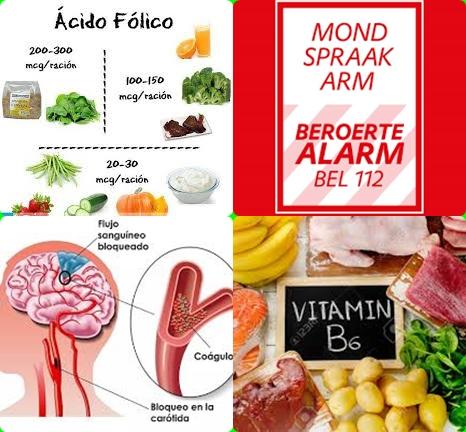
Objectives:
Observational studies regarding the putative associations between dietary intake of homocysteine metabolism-related B-vitamins (vitamin B6, folate and vitamin B12) and stroke risk have yielded inconsistent results. Therefore, this review article has been conducted.
Does dietary intake of vitamin B6, folate or vitamin B12 reduce stroke risk?
Study design:
This review article included 1 nested case-control study and 11 prospective cohort studies comprising 389,938 participants and 10,749 cases (persons with stroke).
The studies were published from 2002 through to 2019 and the follow-up period ranged from 4.2 to 19 years.
All 12 studies provided risk estimates adjusted for cigarette smoking and most studies also adjusted for other conventional risk factors, including BMI, energy intake, alcohol consumption, hypertension and/or physical activity.
Study quality scores ranged from 5 to 9; the mean quality score was 7.4.
There was no evidence of publication bias.
Results and conclusions:
The investigators found for the highest versus the lowest category of dietary vitamin B6 intake, a significantly reduced risk of 16% for stroke [RR = 0.84, 95% CI = 0.73 to 0.97, I2 = 48.8%].
The investigators found in dose-response analysis that each 0.5 mg/d increment in vitamin B6 dietary intake was associated with a 6% reduction in the risk of stroke [RR = 0.94, 95% CI = 0.89 to 0.99, I2 = 77.0%].
The investigators found for the highest versus the lowest category of dietary folate intake, a significantly reduced risk of 15% for stroke [RR = 0.85, 95% CI = 0.78 to 0.94, I2 = 11.5%].
The investigators found in dose-response analysis that each 100 μg/d increase in dietary folate intake was associated with a 6% reduction in the risk of stroke [RR = 0.94, 95% CI = 0.90 to 0.98, I2 = 46.8%].
The investigators found, in contrast, no significant association between dietary vitamin B12 intake and the risk of stroke, with an RR of 1.01 [95% CI = 0.97 to 1.06] per 3 μg/d increase.
The investigators concluded increased dietary intake of vitamin B6 (at least 0.5 mg/d) and dietary folate intake (at least 100 μg/d) is associated with a reduced risk of stroke, supporting the notion that increasing habitual folate and vitamin B6 intake may provide a small but beneficial effect with respect to stroke.
Original title:
Dietary Intake of Homocysteine Metabolism-Related B-Vitamins and the Risk of Stroke: A Dose-Response Meta-Analysis of Prospective Studies by Chen L, Li Q, [...], Wang F.
Link:
https://academic.oup.com/advances/advance-article/doi/10.1093/advances/nmaa061/5854025
Additional information of El Mondo:
Find more information/studies on vitamin B6, folate and lowering of stroke right here.